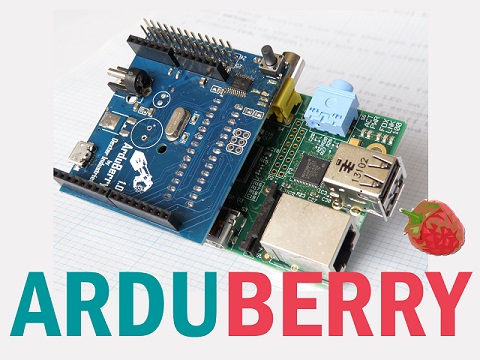This project combines the brains of a Raspberry Pi with the brawn of an Arduino. Read more about the Arduberry here.
These files have been made available online through a Creative Commons Attribution-ShareAlike 3.0 license.
We've devoted some serious time to trying to make sure that it's easy to get started. If you're lost, we would like to first direct you to our [website for the Arduberry] (http://www.dexterindustries.com/Arduberry/)
This repository only holds firmware and hardware designs.
Python - If you're looking for our Arduberry Python libraries, look here: https://github.com/DexterInd/Arduberry
C - If you're looking for the Arduberry C Libraries, look here: https://github.com/DexterInd/Arduberry
Scratch - If you're looking for the Arduberry Scratch libraries, look here: https://github.com/DexterInd/Arduberry
Script - If you're looking for the Arduberry Scripts for installing the softwares and other settings on the Raspberry PI, look here: https://github.com/DexterInd/ArduBerry/tree/master/script
In order to quick install the Arduberry repository, open up a terminal and type the following command:
sudo apt-get update # required if debian packages are not yet installed
curl -kL dexterindustries.com/update_arduberry | bash
The same command can be used for updating the Arduberry to the latest version.
Our custom image for the Raspberry Pi makes using the Arduberry easy. You can download the latest image here.
The board firmware is made in Arduino in order to make it super-hackable. The firmware is written in Arduino 1.0 and can be uploaded directly from the Raspberry Pi itself .
The board supports most of the Arduino sensors and shields and can interact with the Raspberry Pi via I2C and Serial and SPI is used for code burning.
Select the programmer as "Raspberry Pi GPIO"and Use CTRL + Shift + U to Upload the Code to the Arduberry
Dexter Industries. [Arduberry.] (http://www.dexterindustries.com/Arduberry)

